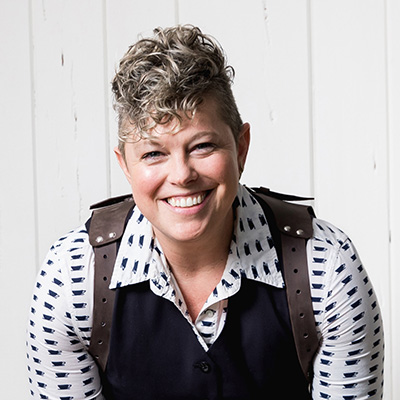We already know that creative and technology agencies offer a combination of strategy, design, technology and advertising services to clients. To get a bit more granular on the service side, think of strategy as representative of the consulting, planning and research services; design as the visual, UX, photography and video services; technology as the engineering, data and systems services; and advertising as the promotional, PR and marketing services.
For agencies that are very similar, values are often the differentiating factor.
As an Agency Growth Consultant, I initially believed that the sole purpose of my consulting practice was to help creative agencies scale—to level-up in positioning, operations, business development and profit margin. A large part of that is still true, but I knew there’s was more to my soul’s purpose.
There’s a deeper definition of “agency” that I had overlooked, and it has become the missing piece to the work I do with business leaders. And it has to do with what a creative leader values in their own life, not just in the values which their company embodies.
What is Human Agency?
In social science, human “agency” is the capacity of individuals to act independently and to make their own free choices.
Now, here’s where things get really interesting as it relates to why leaders of creative and technology firms need more than a business consultant.
Human agency has also been defined by the American Journal of Sociology as a temporally embedded process that encompasses three different constitutive elements: iteration, projectivity and practical evaluation. These correspond to different temporal orientations and provide a framework to study human agency in the context of actions oriented to the past, future and the present.
Iteration (Past)
The iterational element of agency refers to the selective reactivation of past patterns of thought and action. In this way actors have routine actions in response to typical situations that help them sustain identities, interactions and institutions over time.
Projectivity (Future)
The projective element encompasses the process of imagining possible future trajectories of action connected to a person’s hopes, fears, and desires for the future.
Practical Evaluation (Present)
The last element, the practical-evaluative element of agency, entails the capacity of humans to make practical and normative judgments among alternative possible trajectories of actions in response to a context, demand or a presently evolving situation.
From an evolutionary perspective, we can understand how agency would be beneficial in predicting the actions of others. And because it’s possible to deduce another’s intention, we can extrapolate what action or reaction another is likely to take or have.
The takeaway here is that agency leaders typically self-identify as just that—leaders of our agencies. I did the same thing myself. When someone would ask, “So, who are you?”, my response was habitually “I own a digital marketing agency.” We tend to forget that we navigate the responsibility of ownership of our company while simultaneously trying to navigate our own human agency.
With so many moving parts externally and internally, it’s no wonder why so many leaders feel alone, depleted emotionally, mentally, physically and spiritually.
Yet, when we step back and realize that we, as humans, have agency—that is, to make our own choices—we can create a reality where our companies do not define us, control us, or predict what our future might be.
Why Agency Scaler?
Without this conscious sense of knowing at the time, I chose @agencyscaler as the handle for all of my social platform accounts after I sold my own digital marketing firm and began helping other leaders. I’ve come to believe there are no coincidences in life.
Over the last three years, my consulting practice has evolved toward the holistic. The work I do with agency leaders now includes a path toward scaling human agency, which may include bringing awareness to negative emotions and fears, assessing behaviors and thoughts, incorporating mindfulness and meditation practices, and delving into spiritual development.
As we strengthen their business together, we also navigate wounded relationships with those on their leadership team, employees, clients and even spouses. We talk about potential and purpose, and we dig deeply to find out what’s holding them back from the realization thereof.
Within this context, I provide Agency Leader Transformation Coaching—a monthly, one-on-one intimate relationship where we work on the business and the self. I’m finding that this offering is attracting those who are ready for guidance in all aspects of their business and personal life, committed to working together for authentic and long-term success, and open and honest in their communication.



0 Comments